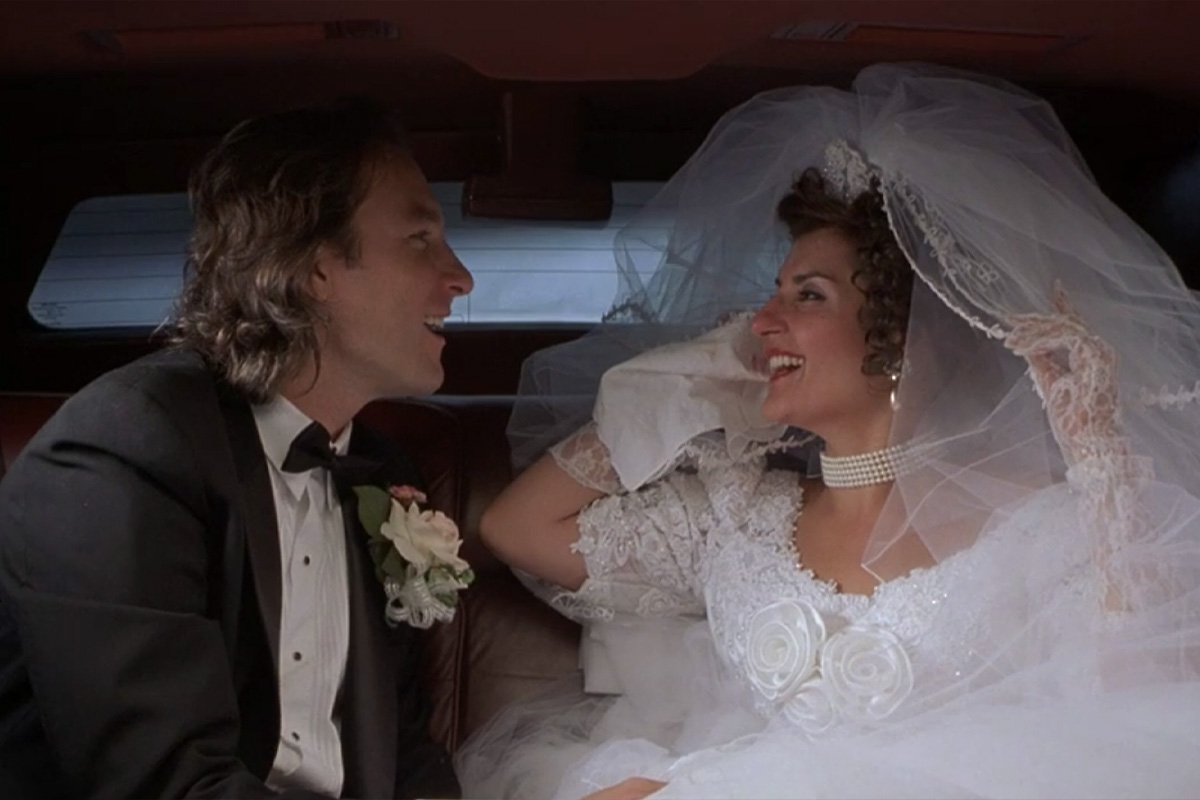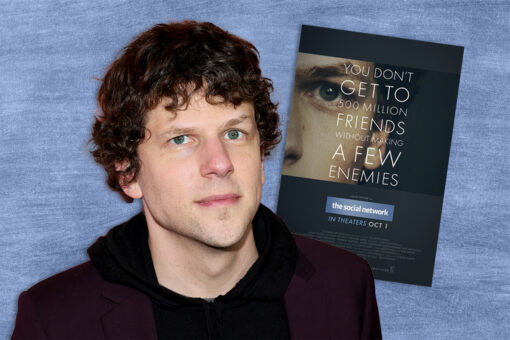“My Big Fat Greek Wedding” was one of those romcoms I loved watching as a tween. The heroine takes her life by the reins and finds her dream guy. Together, they overcome many hilarious family antics (including an endless supply of Windex and a misunderstood bundt cake) with just the right amount of drama and angst and live happily ever after. I still find myself to this day looking at my bony cat and saying to her “You need to eat — I could snap you like a chicken!”
Looking back on “My Big Fat Greek Wedding” as an adult, I was initially appalled: It seemed like protagonist Toula Portokalos (Nia Vardalos) only found belonging and happiness with Ian Miller (John Corbett) when she got a makeover and switched to white bread in order to fit in with the white-bred girls (trading up the moussaka she was teased for as a child). But upon further reflection, I realized that she didn’t give up anything that had been meaningful to her or brought her happiness: She found what balance worked for her as she straddled the world of her family’s heritage and the American society within which she grew up.
As someone who was once an Orthodox Jew and now is decidedly not, Toula’s balance of tradition versus assimilation speaks to me on a deep level. Toula and Ian’s relationship, too, is deeply relatable to any of us who have had interfaith relationships or come from interfaith backgrounds.
For me, the analogy runs deep: On many levels, Toula’s journey as she seeks this balance in her life parallels my own. In the movie, Toula grows up feeling out of place as a girl from a minority, surrounded by the Anglo majority. Rather than feeling proud of her heritage and Greek culture, she feels a sense of shame. But at home, within her own family’s culture, she feels trapped and limited by family and cultural expectations. This is deeply relatable to any Jew who has struggled balancing a differently-Jewish home life, American culture and their own personal identity.
I’ve experienced this struggle between my own Jewishness and majority American culture throughout my life as well — though it should be noted that I still have a lot of privilege as a white femme-presenting nonbinary person. My family began pursuing our Jewish heritage when I was a tween. Stepping into Judaism and stepping out as a Jew in Southern Georgia was basically like being the star of a misfit version of “Where’s Waldo,” in which the objective is to find the one that does not belong. When we moved to Atlanta to live in an actual Jewish community, I didn’t suddenly feel like I’d finally found my place of belonging. On the contrary, I felt like an extraterrestrial at my Jewish Orthodox girls’ high school, where no one had as much exposure to secular American culture as I did, and I didn’t have nearly as much Jewish exposure as they did. It felt like in every space I moved through, whether Jewish or not-Jewish, I was perpetually doomed to be an outsider, straddling a gap between two very different worlds.
Later, once I left Orthodoxy, I found myself distancing myself from my Jewish identity altogether. I felt ambivalent toward Jewishness in any aspect, which created within me a deep sense of shame. I strove to bury my Jewishness as much as possible, seeking refuge in a “basic white girl” facade. (Again, there is a lot of privilege in this that cannot be ignored.) But I also initially felt shame around American culture, too, like when I felt secretive and guilty about bringing a Christmas tree into my living room for the first time since I left the Orthodox world.
All this led me to begin a relationship with someone who ended up being antisemitic. My judgement was so clouded by my own sense of shame that I didn’t even realize it at first. It really wasn’t until numerous months into the relationship, especially once I met his family, that it began to dawn on me. Sometimes it was subtle, like my boyfriend scoffing at a mutual friend’s Passover seder he had attended (without inviting me, by the way), or his family treating me like I was “exotic” (the irony doesn’t escape me). But it became more blatant as time wore on, such as how when we’d talk about our future together, my boyfriend would make it clear that our future kids could not visit my adult siblings during Jewish holidays and that we could never celebrate with them, or how his parents told me that after hosting a mutual friend’s Orthodox-ish family on a weekend trip, the rule was “no more kosher Jews” in their vacation house.
The thing I had missed out on growing up was how many different Jewish spaces exist, in every size, shape, and color. There are not just a few distinct options in the world of Jewry; Jewishness is a rainbow spectrum of diversity in every regard. No one should feel that they must stay in a Jewish space or identity that isn’t a good fit for them. Finding my niche through the progressive and radically inclusive synagogue where I began working created the space for me to find the balance between my identities.
In “My Big Fat Greek Wedding,” Toula ends up getting married to the man of her dreams. He embraces her full identity, even the parts that previously embarrassed her, like her zany Greek family. He shows that he is willing to support the balance of identity that works best for her. In my story, my boyfriend and I mutually broke up after realizing our lives were going in completely different directions and we couldn’t each support the person that the other needed to become. For me, part of that healing was coming to terms with identity — not the identities foisted on me by American culture and Jewish culture respectively, but my own American Jewish identity. In my story, my big fat Jewish break-up (or maybe it was a breakthrough?) was just as much of a happy ending as Toula’s marriage. From there, I could finally explore what my own equivalents of white bread and moussaka were, and how I wanted to mix and match them within my Jewish and American identities.
I have crafted my own Jewish identity, and it makes some people uncomfortable, suspicious, or awkward, but it doesn’t bother me as much anymore: I have a better sense of who I am, and it gives me the confidence to show up and brush off any awkwardness or closed-mindedness I encounter. I’m a multidimensional being — we all are. We do ourselves and each other a grave injustice when we expect everyone to fit within a strictly one-dimensional box.
The movie ends with Toula’s young daughter on her way to Greek school, complaining because she wants to go to Brownie Scouts instead. Toula responds warmly, “I know, I know, but I promise you this — you can marry anyone you want.” After finding more confidence in my identity, I parent much the same. I want my own child (who also complains about going to Jewish Sunday school every weekend) to grow up with the sense of balanced identity I’ve had to fight for so long to find. My personal motto around my American Jewish identity that I carry with me into every interaction these days (as a parent, as a Jewish educator, as an individual) is this: No matter what, YOU get to decide what being Jewish means to YOU. No one gets to choose for you. I hope that by claiming this space for myself, I am helping to hold space open for others to do the same.
Late Take is a series on Alma where we revisit Jewish pop culture of the past for no reason, other than the fact that we can’t stop thinking about it?? If you have a pitch for this column, please e-mail submissions@heyalma.com with “Late Take” in the subject line.




